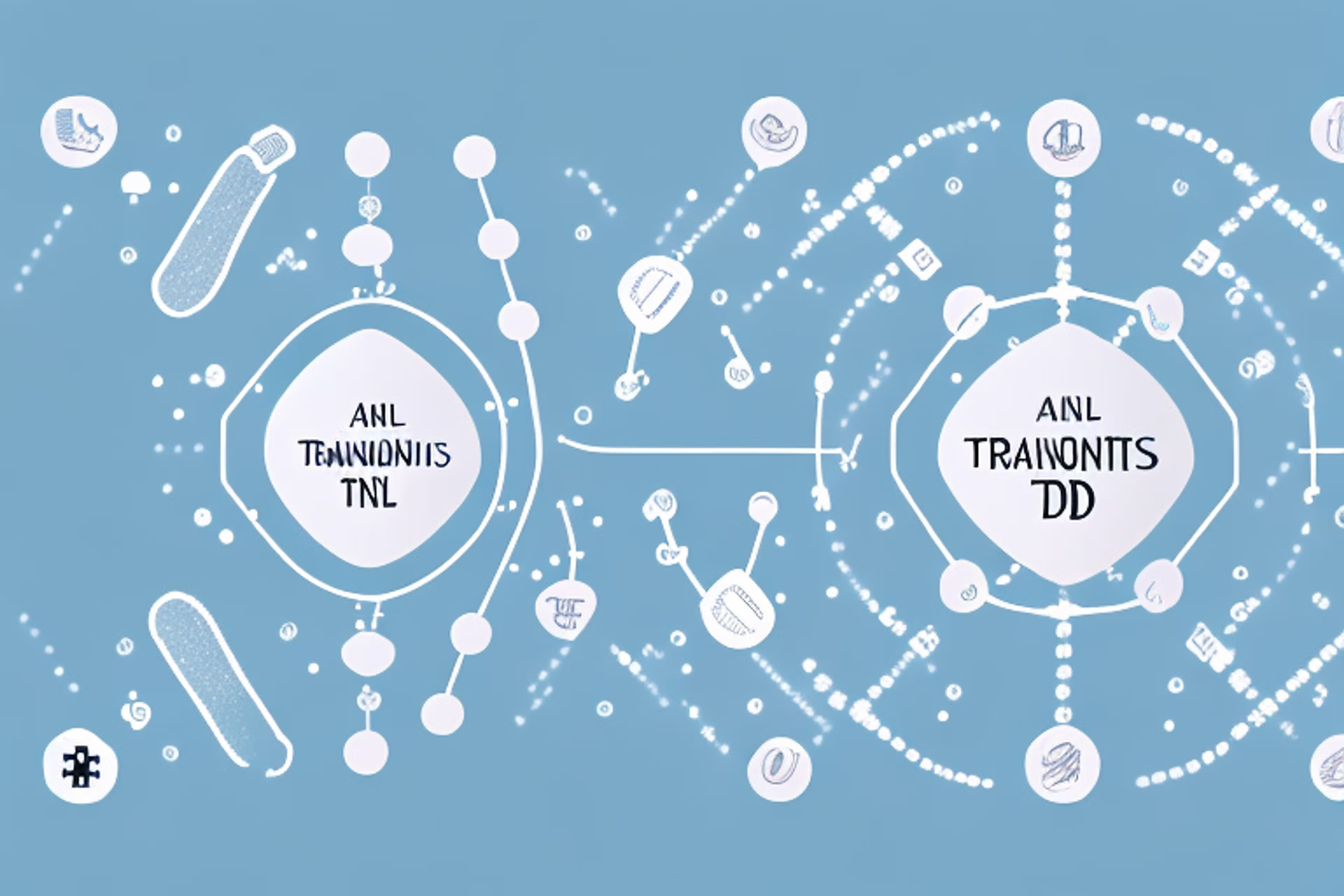From RN to MD: Navigating the Transition and Education Pathway
Are you an RN considering becoming an MD? This article provides a comprehensive guide to navigating the transition and education pathway.
Posted April 10, 2025

Table of Contents
Are you an experienced registered nurse (RN) considering a career shift to become a medical doctor (MD)? Making a transition from RN to MD is a challenging yet rewarding journey that requires careful planning and preparation. In this article, we’ll explore everything you need to know about navigating this transition and the education pathway ahead.
Understanding the Differences Between RN and MD Roles
The primary difference between RN and MD roles is that RNs focus on providing direct patient care, while MDs diagnose, treat, and manage patient health issues. RNs work under the supervision of physicians and perform tasks such as monitoring vital signs, administering medications, and assisting with medical procedures. In contrast, MDs have the authority to prescribe treatment plans and perform complex medical procedures, such as surgeries and biopsies.
However, it is important to note that RNs also play a crucial role in patient advocacy and education. They often act as a liaison between patients and physicians, ensuring that patients understand their treatment plans and are able to make informed decisions about their health. RNs also provide emotional support to patients and their families, helping them cope with the stress and uncertainty that often accompanies illness.
Why Make the Transition from RN to MD?
The transition from RN to MD comes with many benefits, including a higher salary, increased autonomy, better job security, and more opportunities for advancement. Additionally, the MD role allows for more control over patient care and decision-making, leading to a deeper sense of fulfillment and satisfaction.
Another benefit of transitioning from RN to MD is the ability to specialize in a particular area of medicine. As an RN, you may have experience in a specific field, but becoming an MD allows you to become an expert in that field and provide more specialized care to patients. This can lead to a more fulfilling career and a greater impact on patient outcomes.
Furthermore, the transition from RN to MD can also open up opportunities for research and teaching. As an MD, you may have the chance to conduct research and contribute to medical advancements, as well as teach and mentor future healthcare professionals. This can be a rewarding way to give back to the medical community and make a lasting impact on the field.
The Requirements for Becoming an MD
Becoming an MD requires completing several years of formal education and training. This includes earning a bachelor's degree, applying for and attending medical school, completing a residency program, and obtaining licensure. Additionally, many medical schools require students to pass the Medical College Admission Test (MCAT) and meet specific GPA requirements.
During medical school, students typically spend the first two years in classroom settings, learning about the human body, diseases, and medical treatments. The last two years are spent in clinical rotations, where students work with patients under the supervision of experienced physicians. After completing medical school, graduates must complete a residency program, which can last anywhere from three to seven years, depending on the specialty. During this time, they receive hands-on training in their chosen field and work with patients in a hospital or clinic setting. Once the residency is complete, graduates must obtain licensure by passing the United States Medical Licensing Examination (USMLE) or Comprehensive Osteopathic Medical Licensing Examination (COMLEX-USA).
How to Choose the Right Medical School for You
Choosing the right medical school depends on several factors, such as location, cost, reputation, curriculum, and specialization options. Researching and comparing multiple medical schools is crucial to finding the best fit for your needs and goals.
Another important factor to consider when choosing a medical school is the type of learning environment that suits you best. Some medical schools offer traditional lecture-based learning, while others use problem-based learning or team-based learning. It's important to consider your learning style and preferences when selecting a medical school to ensure that you will thrive in the educational environment.
Financing Your Medical Education: Scholarships, Grants, and Loans
The cost of attending medical school can be overwhelming, but there are several financing options available, such as scholarships, grants, and loans. Researching and applying for these options can help alleviate the financial burden of attending medical school.
Preparing for Medical School Entrance Exams: MCAT and More
The MCAT is a standardized exam used by medical schools to evaluate applicants for admission. Preparing for this exam can be challenging, but taking practice tests, participating in study groups, and utilizing resources such as online study guides and review courses can help increase your chances of success. Additionally, some medical schools may require additional entrance exams, such as the Graduate Record Examination (GRE) or the Test of English as a Foreign Language (TOEFL).
It is important to research the specific requirements of each medical school you are applying to in order to ensure you are fully prepared for all necessary entrance exams. Some schools may also require additional application materials, such as letters of recommendation or personal statements. It is important to stay organized and keep track of all deadlines and requirements to ensure a smooth application process.
The Medical School Curriculum: What to Expect
The medical school curriculum is rigorous and challenging, covering topics such as anatomy, physiology, pharmacology, and medical ethics. As a medical student, you can expect to spend a significant amount of time in classrooms, laboratories, and clinical rotations gaining practical experience and developing the skills needed to become an MD.
One of the most important aspects of the medical school curriculum is the emphasis on patient care. Medical students are taught to approach patient care with empathy and compassion, and to communicate effectively with patients and their families. This includes learning how to take a patient's medical history, perform physical exams, and interpret diagnostic tests.
In addition to the core curriculum, medical students have the opportunity to specialize in a particular area of medicine. This can include fields such as pediatrics, cardiology, or neurology. Specializing allows students to gain in-depth knowledge and experience in a specific area, and can help prepare them for a career in that field.
Balancing Work and Study as a Working RN/MD Student
Transitioning from RN to MD while juggling work and personal commitments can be challenging. It’s essential to create a schedule that allows for adequate time to study, attend classes and work, while still maintaining your health and personal relationships.
One effective way to balance work and study as a working RN/MD student is to prioritize your tasks and responsibilities. This means identifying which tasks are urgent and important, and which ones can be postponed or delegated. It’s also important to set realistic goals and deadlines for yourself, and to break down larger tasks into smaller, more manageable ones.
Clinical Rotations and Residency Programs: Building Practical Experience
Clinical rotations and residency programs provide hands-on, practical experience working alongside experienced physicians. These programs are critical to gaining the skills and confidence needed to be successful as an MD.
During clinical rotations, medical students have the opportunity to work in various medical specialties, such as pediatrics, surgery, and internal medicine. This allows them to gain exposure to different medical fields and determine which area they may want to specialize in.
Residency programs, on the other hand, provide a more in-depth and focused training experience. Residents work closely with attending physicians and are responsible for managing patient care under their supervision. This allows them to develop their clinical skills and knowledge in a specific area of medicine.
Specializations in Medicine: Choosing Your Focus Area as an MD
As an MD, you will have the option to specialize in various areas of medicine, such as cardiology, pediatrics, or neurology. Choosing your focus area is a critical decision that should be made based on your interests, strengths, and career goals. Researching the different specialties and learning about the requirements and job outlook can help you make an informed decision.
The Role of Technology in Modern Medicine: How RNs and MDs Adapt
The rapid advancements in technology have revolutionized modern medicine, leading to innovative treatments, better patient outcomes, and improved patient care. As an RN transitioning to an MD role, staying abreast of technological advancements is crucial to delivering high-quality care and remaining competitive in the industry.
Networking Opportunities for RNs Transitioning to MDs
Networking with other healthcare professionals and medical students is an excellent way to gain insight into the MD role, build relationships, and stay up-to-date with industry trends. Attending medical conferences, joining professional organizations, and participating in online forums can provide valuable networking opportunities.
Challenges Faced by RNs on the Journey to Becoming an MD
The journey from RN to MD comes with several challenges, including the rigorous coursework, managing work and personal commitments, and dealing with the emotional toll of patient care. It’s essential to have a support system in place, including friends, family, and mentors, to help navigate these challenges.
Advice from Experienced RN-MDs: Tips for Success in Medical School and Beyond
Learning from experienced RN-MDs can provide valuable insight into the transition from RN to MD. Tips for success include setting realistic goals, creating a support system, utilizing resources such as study groups and online study materials, and maintaining a work-life balance.
Transitioning from RN to MD is a challenging yet rewarding journey that requires careful planning and preparation. By understanding the differences between RN and MD roles, researching medical schools, financing your education, and preparing for entrance exams, you can navigate this transition pathway with confidence and achieve your career goals.












